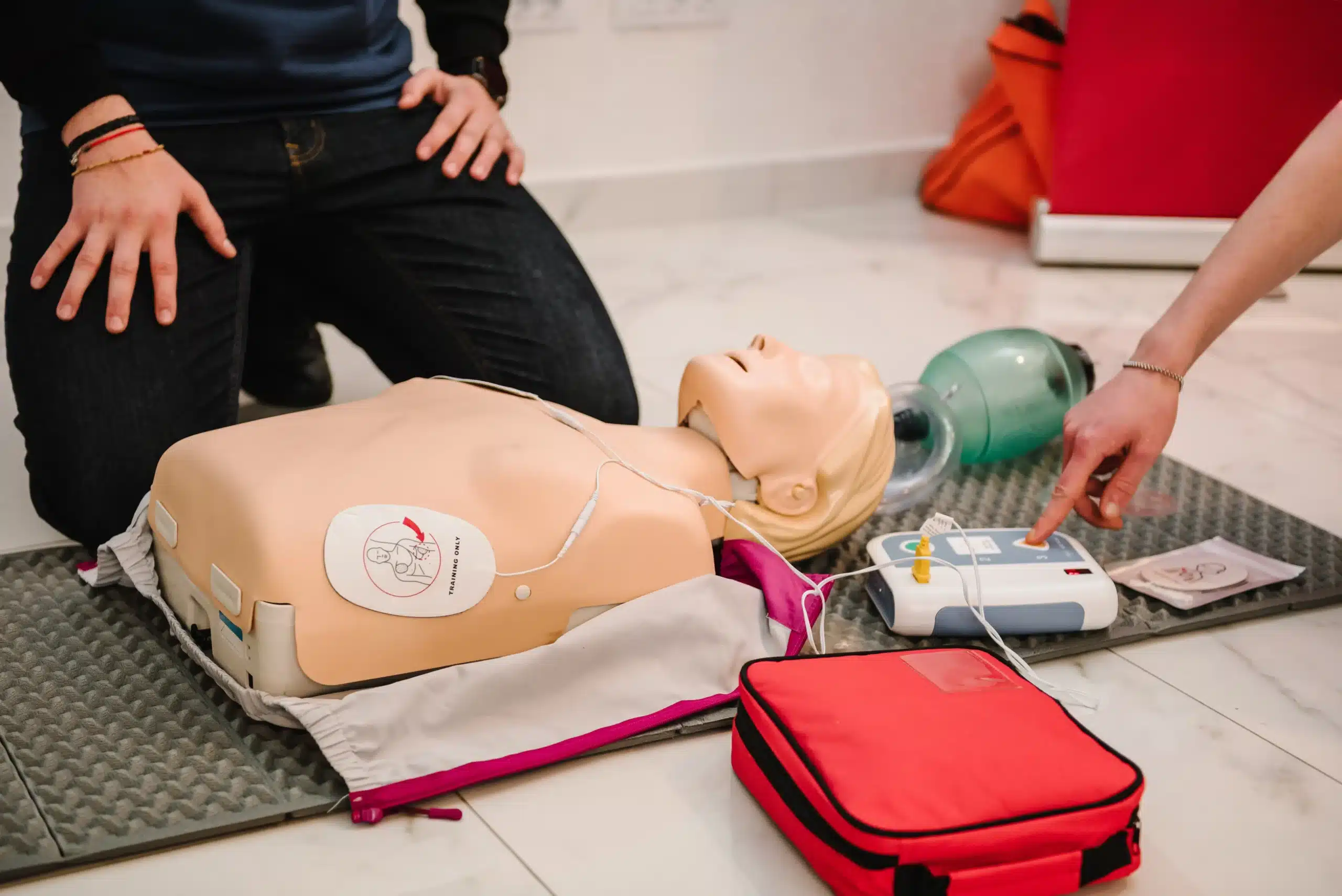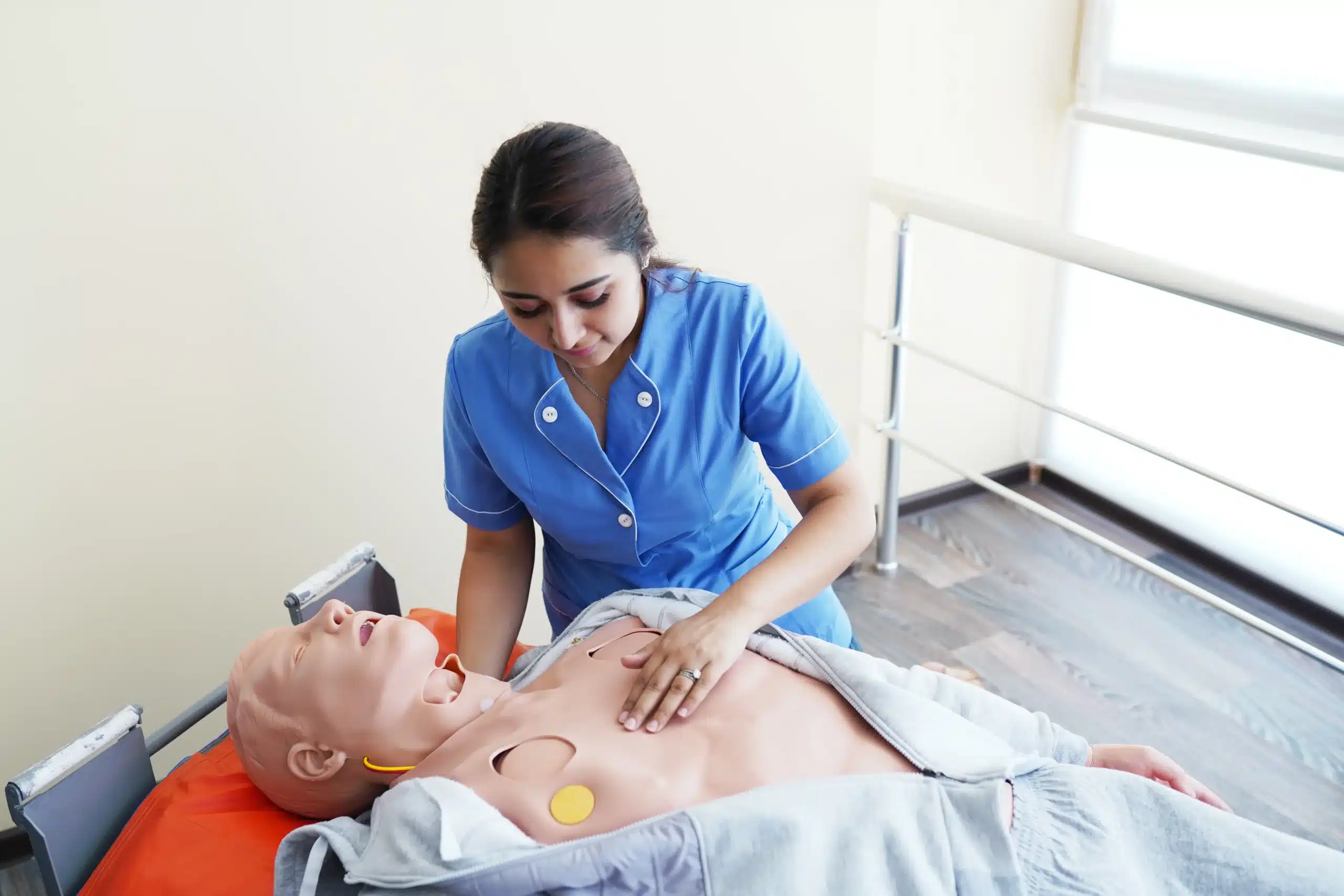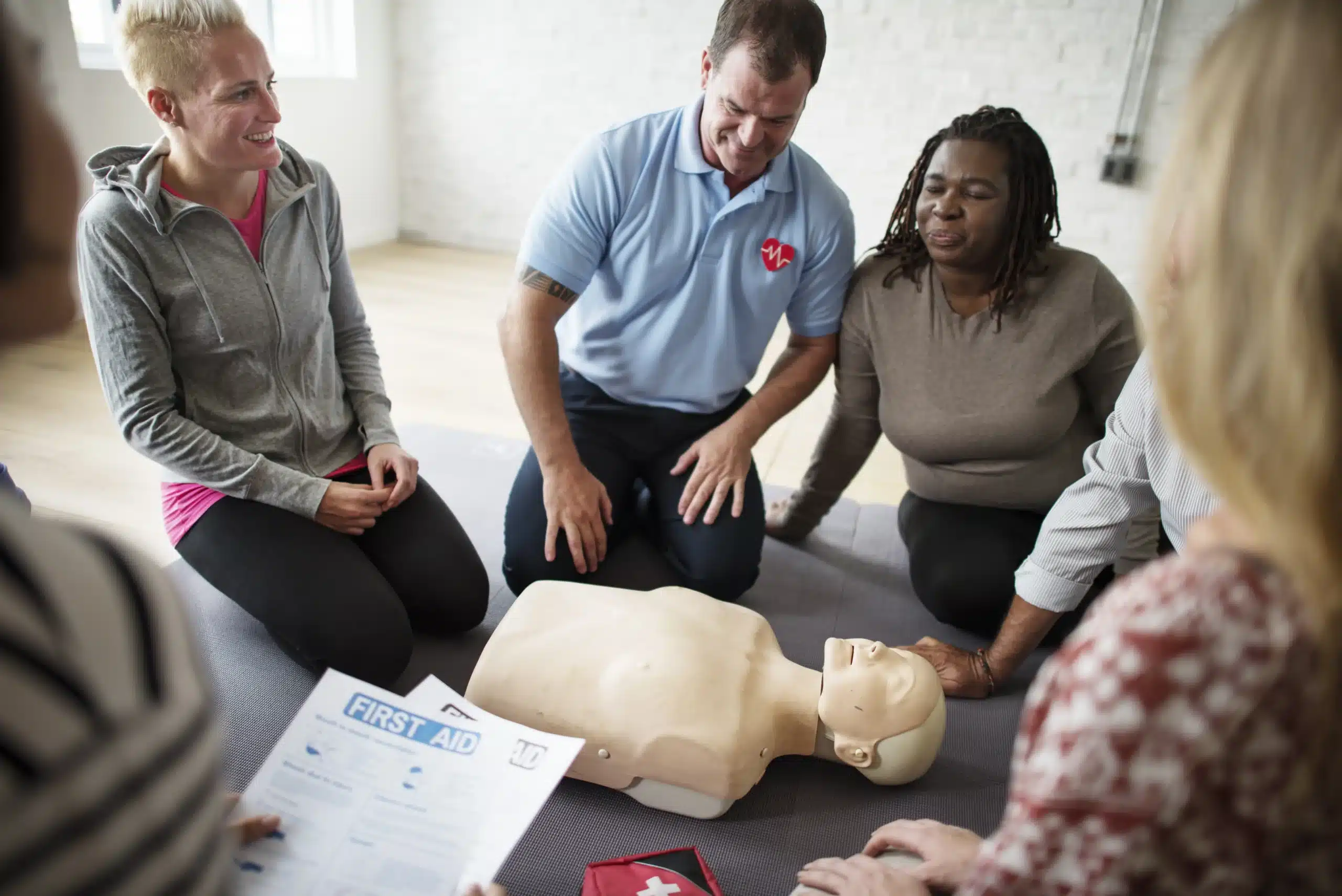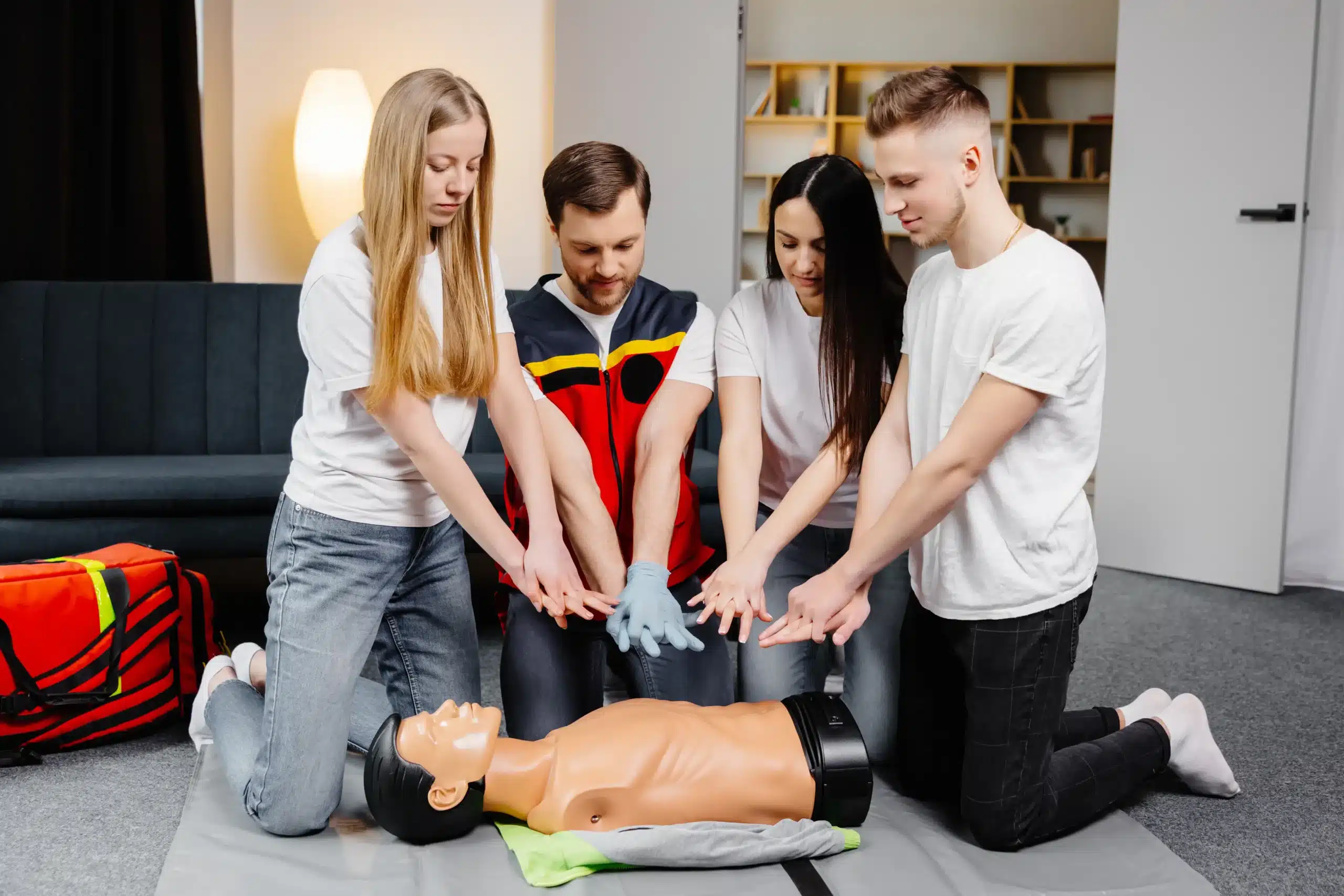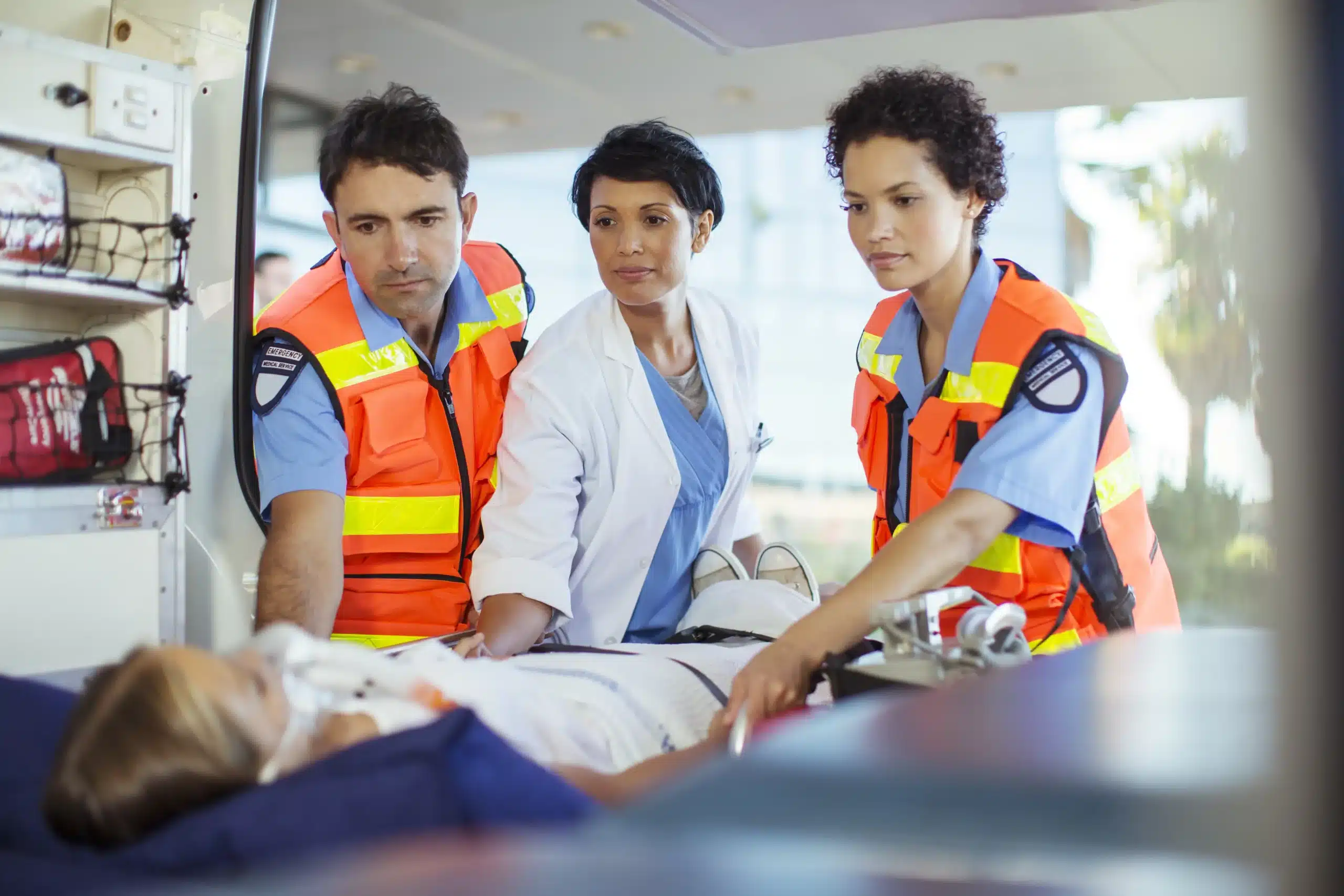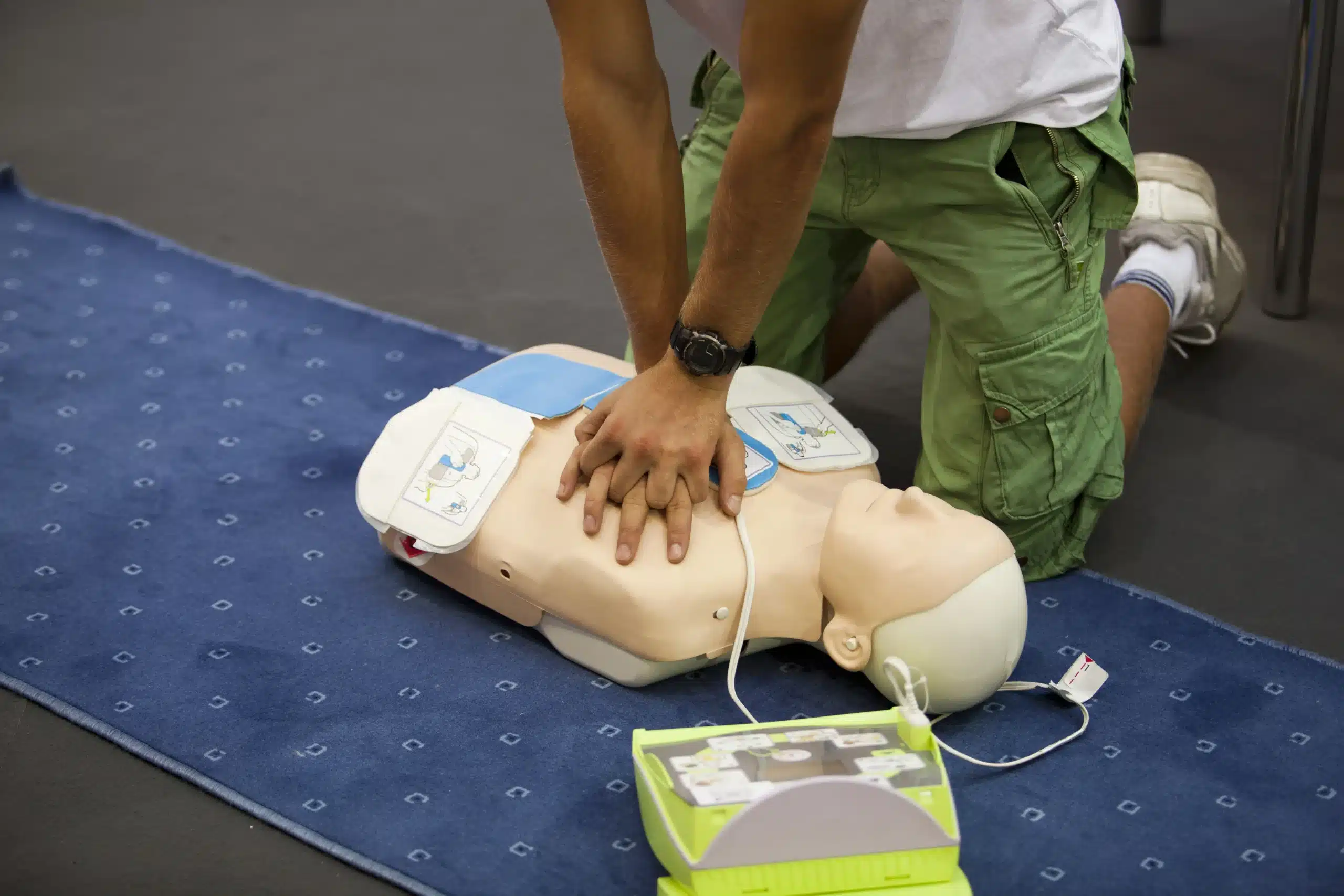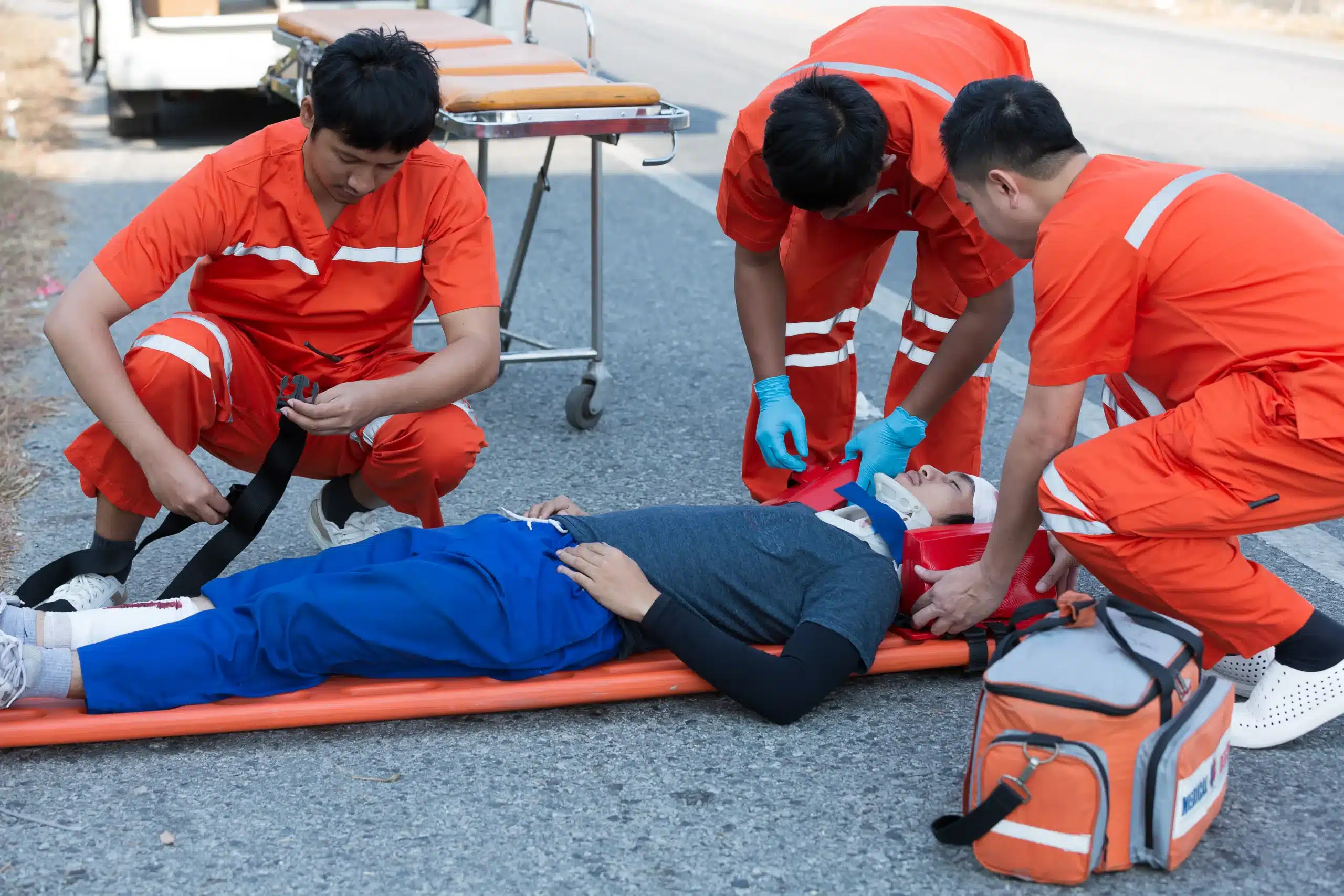In the face of a medical emergency, seconds can matter. CPR classes in Livermore empower you to act quickly and confidently, potentially saving a life. This comprehensive guide explores the various CPR and First Aid courses available in Livermore, catering to everyone from healthcare providers to concerned community members. We’ll break down the different certification levels, discuss costs and scheduling, and even delve into innovative training methods that are transforming CPR education. Whether you’re looking to fulfill a job requirement, enhance your professional skills, or simply gain the peace of mind that comes with being prepared, this guide will help you navigate the world of CPR training in Livermore.
Key Takeaways
- Find the Right CPR Class for You: Livermore offers a variety of CPR and First Aid courses, from basic life support for the general public to advanced certifications for healthcare providers. Explore the options and choose the best fit.
- CPR Training is Accessible and Convenient: With flexible schedules, various locations, and group discounts, CPR training in Livermore fits easily into your busy life.
- Empower Yourself to Save a Life: Learning CPR gives you the confidence and skills to act quickly in emergencies, making a real difference in your community.
What is CPR? Livermore Classes Explained
Cardiopulmonary Resuscitation (CPR) is a life-saving emergency procedure that combines chest compressions and rescue breaths. It keeps blood and oxygen flowing to the brain and other vital organs when someone’s heart has stopped. Learning CPR gives you the confidence to act quickly and potentially save a life. It’s a critical skill for various professions, including healthcare, childcare, and other fields requiring emergency preparedness.
Livermore residents have access to various CPR classes, often certified by the American Heart Association (AHA). These courses cater to different needs, from healthcare providers needing BLS certification to people wanting to learn essential life-saving skills. Safety Training Seminars offers comprehensive training in CPR, First Aid, and advanced certifications like ACLS and PALS. Many providers offer flexible scheduling, including daily classes and on-site training for groups, often with group discounts. The courses are designed to make learning convenient and accessible for everyone.
The AHA’s Resuscitation Quality Improvement (RQI) program is a streamlined option for medical professionals seeking efficient BLS, ACLS, and PALS certification. RQI uses innovative methods like real-time feedback and online learning components. Taking a CPR class in Livermore means gaining valuable skills and contributing to a safer community. Knowing how to respond in a medical emergency can make a real difference.
CPR & First Aid Courses in Livermore
Finding the right CPR and first aid course can feel overwhelming, but it doesn’t have to be. This section breaks down the different types of courses available in Livermore, so you can choose the one that best suits your needs. Whether you’re a healthcare provider, work in childcare, or simply want to be prepared for an emergency, there’s a course for you.
BLS
The Basic Life Support (BLS) course covers core CPR skills for healthcare professionals and other trained responders. You’ll learn how to recognize life-threatening emergencies, provide high-quality chest compressions, deliver appropriate ventilations, and use an AED. BLS certification is often a job requirement for healthcare providers. Dublin CPR Classes offers American Heart Association BLS certification in Livermore.
ACLS
Advanced Cardiovascular Life Support (ACLS) training builds on the foundation of BLS. This course is designed for healthcare professionals who manage cardiopulmonary arrest or other cardiovascular emergencies. It covers advanced airway management, pharmacology, and team dynamics during resuscitation. If you’re a doctor, nurse, or paramedic, ACLS certification is essential. Explore our directory of CPR classes in Northern California to find an ACLS course near you.
PALS
Pediatric Advanced Life Support (PALS) focuses on the specific needs of infants and children during emergencies. This course gives healthcare providers the knowledge and skills to manage respiratory emergencies, shock, and cardiac arrest in young patients. Like BLS and ACLS, PALS certification is typically required for healthcare professionals working with children.
First Aid
First aid training teaches you how to respond to various medical emergencies, from minor cuts and burns to more serious injuries like fractures and allergic reactions. Learning basic first aid helps you provide immediate care until professional medical help arrives. You can often find combined CPR and first aid classes in Livermore, making it easy to get certified in both.
Hands-Only CPR
Even without formal training, you can still help during a cardiac emergency. Hands-only CPR involves continuous chest compressions at a rate of 100-120 beats per minute. It’s a simple yet effective technique that anyone can learn. While we always recommend formal CPR training, knowing hands-only CPR empowers you to act quickly and potentially save a life. Learn more about hands-only CPR and its effectiveness.
Costs & Scheduling
Finding a CPR class that fits your budget and schedule is easier than you think. Here’s what you can expect regarding CPR and First Aid training costs and scheduling options in Livermore:
Course Pricing
CPR and First Aid training generally costs somewhere between $40 and $60 per person. For healthcare providers needing Basic Life Support (BLS) certification, the cost typically ranges from $60 to $80. Dublin CPR Classes offers a low price guarantee, ensuring you receive high-quality training at a competitive price.
Group Discounts
If you’re coordinating training for a group, such as your workplace or community organization, take advantage of providers offering group discounts. This can make training more affordable and convenient for everyone.
Class Times & Locations
Many CPR training centers offer flexible class times, often running daily from 8 am to 10 pm, seven days a week. This wide availability makes it easier to fit training into your busy schedule. Dublin CPR Classes serves Dublin, Livermore, and San Ramon, making training accessible throughout the Tri-Valley area. You can find additional locations in our Northern CA CPR directory.
On-Site Training
For larger groups or businesses, on-site training offers maximum convenience. Providers like Dublin CPR Classes can bring the training directly to your workplace. This minimizes disruption to your team’s workday and eliminates the need for individual travel to a training center.
Certification: Process & Validity
Getting certified in CPR is straightforward, and understanding your certification’s validity is key to staying prepared for emergencies. Here’s what you need to know about CPR certification in Livermore:
AHA Certification
Dublin CPR Classes offers American Heart Association (AHA) certified courses. This means your training aligns with the latest AHA guidelines and standards, giving you the most current knowledge and skills. Whether you’re taking CPR, BLS, ACLS, PALS, or First Aid, successful completion earns you an official AHA certification card. These certifications are widely recognized, ensuring you meet requirements for various workplaces and professional organizations.
Same-Day Cards
One advantage of training with Dublin CPR Classes is receiving your certification card the same day you complete your skills test. No waiting for mail—you’ll leave class fully certified and ready to use your new skills. This immediate certification is especially helpful for those meeting urgent deadlines for work or other commitments.
Renewal & Validity
Your AHA CPR certification is valid for two years. Staying current with your certification is crucial, as guidelines and best practices can change. Dublin CPR Classes offers renewal courses to refresh your skills and knowledge, ensuring you remain prepared and confident in responding to emergencies. Check their website for information on upcoming courses and stay ahead of the curve.
Choose the Right CPR Class
Knowing which CPR class is right for you depends on your specific needs. Whether you’re a healthcare provider, work with children, or want to be prepared for everyday emergencies, there’s a CPR class in Livermore designed for you.
Healthcare Professionals
Healthcare professionals, such as doctors, nurses, and EMTs, need a deep understanding of CPR techniques. The American Heart Association (AHA) offers BLS CPR classes created specifically for healthcare providers. These courses cover essential skills like high-quality CPR, using an AED, and working effectively in a team during cardiac emergencies. This training ensures you can deliver the best possible care in clinical settings.
Childcare Providers
Working with children requires specialized training. California CPR classes for childcare providers focus on the unique needs of infants and young children. These courses give caregivers the skills to respond effectively to pediatric emergencies, creating a safer environment for the children they care for. Check your licensing requirements to make sure you choose the appropriate course.
General Public & Workplace Safety
CPR and First Aid knowledge is valuable for everyone. CPR and First Aid training empowers people to respond confidently to emergencies at home, in public, or at work. These courses are ideal for community members, teachers, office workers, and anyone who wants to be prepared to help in a crisis. CPR certification is usually enough for most non-medical settings, but adding First Aid skills can make you even more prepared.
What Happens in a CPR Class?
Curious about what goes on in a CPR class? It’s a mix of learning, hands-on practice, and testing. Here’s what you can expect.
Course Structure & Duration
CPR classes typically combine lectures, demonstrations, and practice. You’ll cover CPR basics like chest compressions, rescue breaths, and how to spot a cardiac arrest. In Livermore, BLS CPR classes usually last four to six hours, giving you plenty of time to learn and practice.
Hands-on Practice & Assessment
The most important part of the class is the hands-on practice. You’ll work with training mannequins to get comfortable with the techniques. Many courses use mannequins with electronic feedback, showing you real-time data on your compressions. This immediate feedback helps you refine your technique and improve your CPR skills. Research shows this type of feedback leads to better skill retention. You’ll also be assessed to make sure you can perform quality CPR.
Preparation & Materials
Wear comfortable clothes to your class, as you’ll be moving around and kneeling. Your CPR class provider will supply the materials, including the training mannequins. Some providers, like Livermore CPR Classes, even offer a free keychain CPR mask. This lets you practice rescue breaths safely. Knowing you’ll practice compressions on a CPR training mannequin can also help you feel more comfortable before class.
Benefits of Livermore CPR Training
Learning CPR is a valuable skill, but taking a CPR class in Livermore offers unique advantages. The city’s thriving community, coupled with access to excellent training resources, makes it an ideal location to develop this life-saving skill. Let’s explore some key benefits.
Confidence in Emergencies
Knowing CPR can transform how you respond to emergencies. Instead of feeling helpless, you’ll gain the skills and confidence to take action. This preparedness can make all the difference, especially when seconds count. Addressing common misconceptions about CPR further empowers people to act decisively and effectively. For example, many hesitate to perform CPR, fearing they might cause harm. However, quality CPR training addresses these concerns and emphasizes that any attempt at CPR is better than none.
Community Safety
CPR and First-aid training are vital for community safety, particularly in a growing city like Livermore. When more residents are equipped to handle medical emergencies, the entire community benefits. This widespread knowledge creates a safety net, increasing the chances of positive outcomes for anyone experiencing a sudden cardiac arrest or other medical crisis. Local CPR classes contribute directly to a more resilient and prepared community.
Professional Development
For healthcare providers and those in related fields, CPR training is essential for professional development. Regular training and access to advanced techniques, like those using real-time feedback devices, enhance the quality of CPR delivered. These feedback devices offer precise measurements of compressions, motivating students to refine their technique and improve overall performance. Staying current with the latest ILCOR recommendations ensures healthcare professionals provide the highest standard of care. This commitment to ongoing learning strengthens individual skills and elevates the quality of care within the healthcare system.
Overcome CPR Training Challenges
Let’s face it: adding another to-do to your list can feel overwhelming. We get it. That’s why we’ve designed our CPR training to be as accessible and convenient as possible. Here are some common concerns and how we address them:
Physical Limitations
CPR can be physically demanding. If you have any physical limitations, discuss them with your instructor. Dublin CPR Classes instructors can offer modifications to certain techniques, ensuring everyone can participate fully. Don’t hesitate to reschedule if needed; your comfort and safety are paramount.
Scheduling Conflicts
We know you’re busy. That’s why Dublin CPR Classes offers classes seven days a week, from 8 am to 10 pm. With this flexible schedule, you can find a time that works for you, whether it’s a weekday evening or a weekend afternoon.
Skills Test Prep
Want to ace your skills test? Pre-course videos can significantly improve your chances of success. These videos demonstrate proper techniques, like allowing for full chest recoil during compressions. Pay close attention to the on-screen instructions, and you’ll be well-prepared. This preparation can increase your chance of passing by approximately 50%.
Innovative CPR Training Methods
CPR training has come a long way. New techniques and technologies are constantly being developed to make training more effective and engaging. Here’s a look at some of the innovative methods shaping the future of CPR education:
Real-Time Feedback
Imagine getting instant feedback as you practice CPR. Real-time feedback devices do just that. These tools use sensors and sophisticated software to analyze your compressions and breaths, providing immediate feedback on your depth, rate, and technique. This immediate feedback helps you correct mistakes as they happen and develop good habits from the start, enhancing both performance and motivation in learners. Knowing exactly what you’re doing well and where you need to improve makes a real difference in skill development, leading to more confident and competent CPR providers.
Automated Feedback
Automated feedback systems take the benefits of real-time feedback a step further. These systems often incorporate interactive mannequins that provide objective assessments of your performance without the need for constant instructor oversight. This allows for more independent practice and personalized learning. Automated feedback improves skill acquisition and retention, ensuring that the skills you learn in class stay with you. It’s like having a personal CPR coach guiding you every step of the way.
Online & Hybrid Learning
Online and hybrid learning models offer flexibility and convenience for busy schedules. These programs often combine online modules with in-person skills sessions, allowing you to learn the cognitive aspects of CPR at your own pace and then practice your skills with an instructor. Many online platforms also incorporate interactive elements and simulations to keep you engaged and reinforce learning. This blended approach offers the best of both worlds, combining the convenience of online learning with the hands-on experience of traditional classes. Hybrid learning with instant feedback from interactive mannequins has been shown to improve engagement and motivation, leading to better CPR outcomes.
Livermore CPR Training Providers
Finding the right CPR class can feel overwhelming, but several excellent providers serve the Livermore community. Here are a few options to consider:
Dublin CPR Classes
Dublin CPR Classes offers a range of American Heart Association courses, including BLS, ACLS, PALS, and First Aid. They focus on providing affordable, high-quality training with a low-price guarantee. Conveniently located to serve Dublin, Livermore, and San Ramon, they also offer group discounts and convenient on-site training options. Their use of the RQI program allows for flexible online renewal of certifications.
Bay Area CPR
Bay Area CPR provides various courses throughout the Bay Area. Check their website for specific class schedules and locations in Livermore. They offer standard CPR and First Aid certification, along with more specialized courses.
Livermore CPR Classes
This training center focuses specifically on the Livermore area and offers various courses, including CPR, First Aid, and specialized certifications. Contact them directly for current course offerings and schedules.
American Red Cross Livermore
The American Red Cross is a nationally recognized provider of CPR and First Aid training. Their website offers resources and information on finding classes in your area, including Livermore. They offer various courses suitable for everyone from healthcare providers to the general public.
Related Articles
- BLS Classes in Livermore: Your Complete Guide – Dublin CPR Classes
- CPR & First-Aid in Livermore: Your 2024 Guide – Dublin CPR Classes
- AHA ACLS Classes in Dublin, CA – Dublin CPR Classes
- First Aid Certification Dublin CA: A Practical Guide – Dublin CPR Classes
- Debunking Common CPR Myths for Better Preparedness
Frequently Asked Questions
How much does a CPR class in Livermore cost? CPR and First Aid classes typically range from $40 to $80, depending on the level of certification. BLS classes for healthcare providers are usually at the higher end of that range. Look for providers like Dublin CPR Classes that offer a low-price guarantee and group discounts.
What’s the difference between CPR and First Aid training? CPR focuses specifically on life-saving techniques for cardiac arrest and breathing emergencies. First Aid covers a broader range of medical emergencies, from minor cuts and burns to more serious injuries. Many providers offer combined CPR and First Aid classes.
How long does a CPR certification last, and how do I renew it? CPR certifications are typically valid for two years. Renewal courses are readily available to keep your skills current and maintain your certification. Some providers, like Dublin CPR Classes, use the RQI program, which offers a convenient online renewal option.
What if I have physical limitations? Can I still take a CPR class? Absolutely! Talk to your instructor about any physical limitations you have. Reputable CPR trainers will work with you to modify techniques as needed, ensuring everyone can participate comfortably and safely.
Which CPR class is right for me? It depends on your needs. Healthcare providers typically require BLS certification. If you work with children, a PALS course is recommended. For general knowledge and preparedness, a standard CPR and First Aid class is a great option. Consider your workplace requirements and personal goals when choosing a class.


